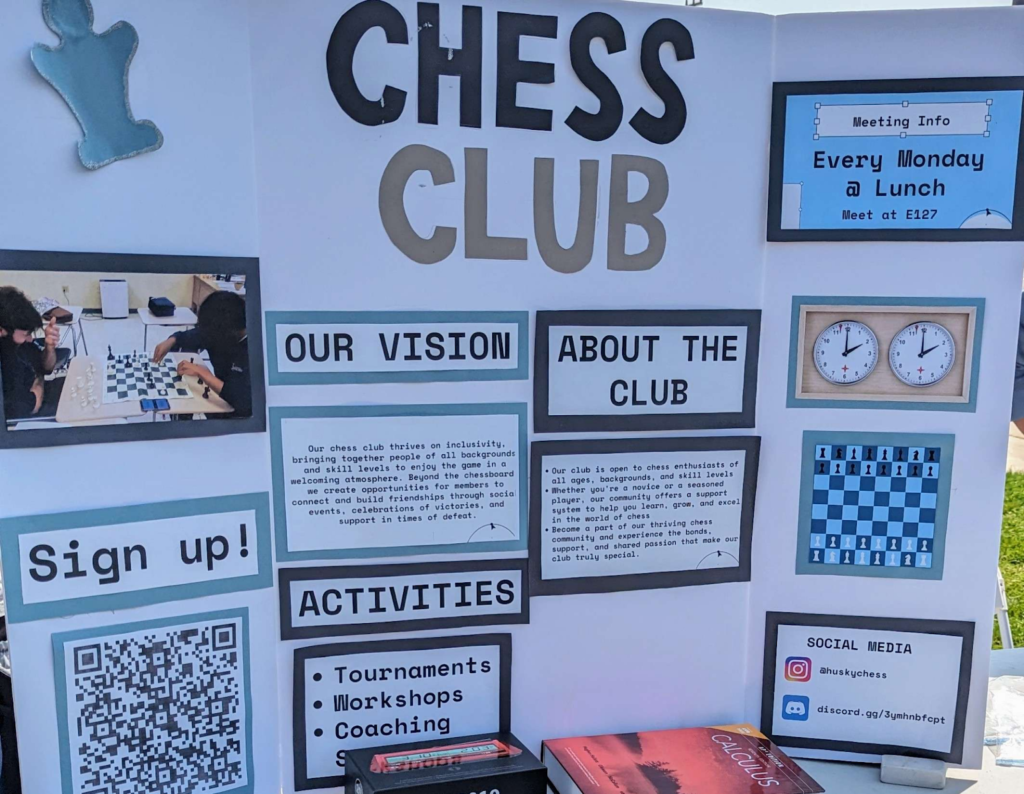Image from author.
Top: Arun Sharma playing chess with another student.
The game of chess is a sport which requires will, memorization, focus, motivation, and creative thinking skills. Chess can be played at a high level, and what differentiates chess from other sports is the unique ranking system which is called “Elo.” This is basically a number which measures the strength of a player compared to other players. For example, Magnus Carlsen, who is the world’s current best chess player, holds the record with a rating of 2882.
Chess is known to be challenging both physically and mentally. This sport requires stamina, focus, and motivation because players are sitting at a board for numerous hours. A fun fact about chess is that players can burn up to 132 calories per hour in high-stakes tournaments. Chess is also mentally demanding. For example, when a chess player is competing in a top level tournament, a loss could really set them back. One’s mood during a chess game can determine the outcome of their game. Top Grandmaster Levon Aronian once said that during a game he wasn’t in the right mood and decided to force a draw, despite having a slightly better position. This is a vital area that rising chess stars often don’t seem to understand yet. Another thing that makes chess mentally challenging is the amount of tournaments players must compete in to qualify for the World Chess Championship (held every two years). If someone wants to qualify, they have to maintain a minimum Elo rating, win the candidates tournament, receive a wild card entry (depending on the circumstances), and win other nerve wracking tournaments.
Despite these vigorous prerequisites, chess is proven to benefit its players. The game improves memory, creativity, teaches one how to plan ahead, and more. Swayam Panda, a junior at Washington High School and a skilled chess player, said, “Since chess requires people to remember a lot of openings, I noticed that my memorization skills significantly got better over time.”
Additionally, chess teaches accountability. Unlike most other games, there is no luck involved in chess. If somebody played a game of chess and lost, they must have made a mistake somewhere in the game. Nobody is perfect, and this important lesson is taught in chess. On the other hand, Chess is a sport that boosts one’s confidence because if somebody wins a tournament or game, they have no one to congratulate but themselves. Additionally, chess is accessible to people of all ages, backgrounds, and cultures. There are many clubs, classes, and lectures that people can attend in order to strengthen their skills in the game. For this specific reason, chess can be self taught, but it requires a lot of commitment and will to succeed. These benefits raise the question: “Is it a good idea to implement chess in the educational system at schools”? Another student, Sanjeev Sathyamoorthy, said, “Chess is very useful in many ways, which is why it should be a class offered in school. It raises inclusivity, may help students in math topics, and teaches good sportsmanship”.
Washington High School has quite a few chess players. The popular show “The Queen’s Gambit” caused a massive increase in interest in chess, which is why so many students are aware of the sport. Washington has a Chess Club, where beginners and enthusiasts can learn together. It is held in room E-127 on Mondays at lunch time, where people of all skill levels can compete in chess tournaments and attend lectures.

Tri fold project for Chess Club during club rush.
Arun Sharma is currently a junior at Washington High School. He was born and raised in Fremont, California and this is his first year with The Hatchet. He’s interested in covering topics regarding economics, sports, art, and health. In his free time he loves to play video games, study chess, listen to music, cook with his parents, and spend time with friends and family. Arun intends on attending a university and majoring in something that is related to STEM.
Arun Sharma is currently a junior at Washington High School. He was born and raised in Fremont, California and this is his first year with The Hatchet. He’s interested in covering topics regarding economics, sports, art, and health. In his free time he loves to play video games, study chess, listen to music, cook with his parents, and spend time with friends and family. Arun intends on attending a university and majoring in something that is related to STEM.


